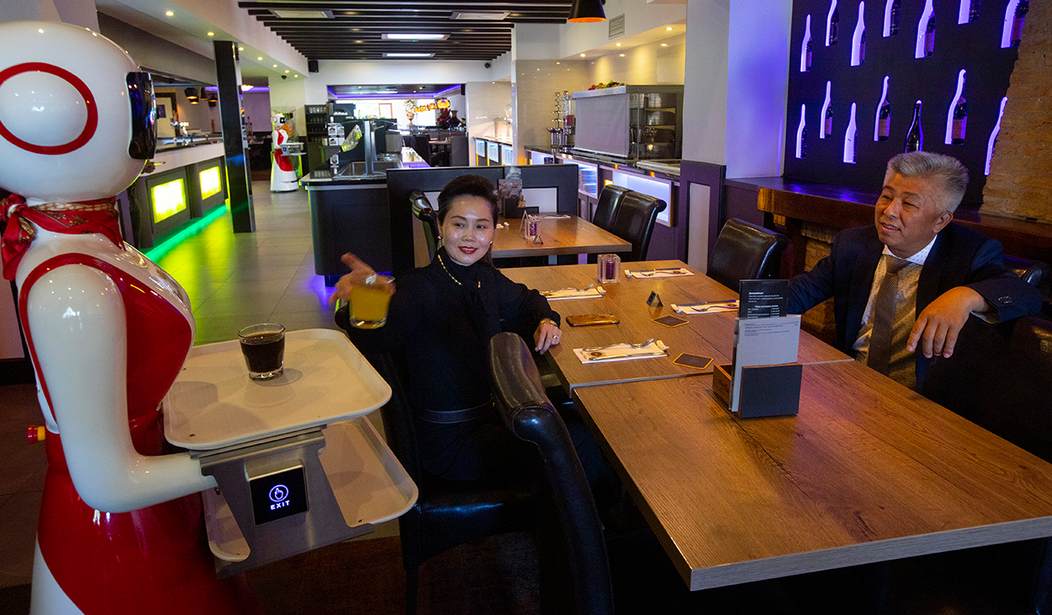"The steady replacement of men by machines -- the advance of automation -- is already threatening to destroy thousands of jobs and wipe out entire plants," warned John F. Kennedy in 1960, a time when computers took up entire rooms and cost millions of dollars.
Sixty years later, when technology is less expensive and more capable, employing technology is economical for even more tasks. Kennedy talked about industrial robots performing operations at car manufacturing plants. Today, robots process your burger order (think mobile apps or those touch screen kiosks at McDonald's) and will cook the actual burger in the near future. These are basic realities and no amount of rhetoric from politicians will stop these changes.
Politicians, however, are accelerating automation—perhaps without even realizing it.
First, the political push to mandate higher wages across the board is making the alternative—Flippy, the Burger-flipping Robot, yes Flippy is really a thing—more attractive. Currently the lowest paid fast food cooks make about $9 per hour. If the federal minimum wage were raised to $15 per hour, the savings from employing Flippy—who costs $3 per hour—would double from $6 to $12.
This is economic logic confirmed in real life. Of course, the extent to which the increases in minimum wage affect employment and how long it takes for these effects to manifest are valid points for a broader discussion. However, to deny the logical connection between the two is an affront to logic and economics.
Secondly, when politicians make working more lucrative than working, many people will choose not to work at all. Right now there are more job openings than even before the pandemic, but few wish to work because not working pays about $16 per hour—give or take—in many states.
Recommended
“I hear every day from employers who have been forced to reduce business hours, refuse large deliveries, and turn down economic opportunities due to the simple fact that they did not have the staff to support them,” Georgia Labor Commissioner Mark Butler.recently observed.
If humans fail to show up at work, robots will be hired instead. It’s that simple.
Of course many progressives retort that businesses should increase wages significantly above $15 an hour for the workers to return. This is not wrong from a purely theoretical perspective. However, it is as useless as Marie Antoinette’s advice to “eat cake instead” when the poor complained about shortages of bread.
For one, if you are competing in tightly competitive, international markets, significant increases in wages can drive the costs of products above what the buyers are willing to pay. Patrons might not care if you increase the price of cocktails by a couple of dollars in a Manhattan bar, but selling pork or cement on the wholesale market is different.
Additionally, if you force even higher wages Flippy and his robot friends will become even more attractive to many businesses. (One should also not forget how many parents are kept at home by politicians refusing to open up schools, and making the parents stay with their children for the entirety of the day.)
Ironically enough, all of this—forcing a higher minimum wage, paying people more for not working, keeping schools closed—affects those who are already less fortunate. Those who earn hundreds of dollars per hour will not be affected by changes in the minimum wage or a government handout of a couple of hundred dollars per week; they can afford private schools or daycare too.
If we zoom out and look at the entire history, the cooperation between men and machines has been beneficial. When men and machines work together they usually create more goods, pay higher salaries, and generate more profits and prosperity. However, transitions are not painless, and some people are hurt in the process.
Machines will get cheaper, smarter and more attractive to companies on their own. The last thing we need is politicians making human workers even less attractive.

























Join the conversation as a VIP Member